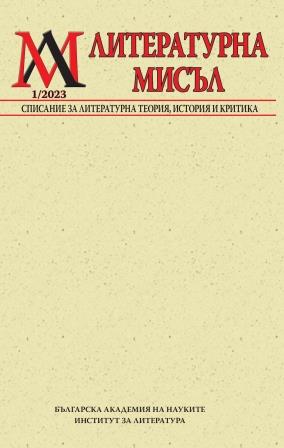„Притчата“ на Стефан Цанев „Най-чудното чудо“: Слово и примитив
The ʻparableʼ “The most wonderful Wonder” by Stefan Tsanev: Speech and Archaics
Author(s): Nikolay KirilovSubject(s): Theatre, Dance, Performing Arts, Language and Literature Studies, Fine Arts / Performing Arts, Studies of Literature
Published by: Институт за литература - БАН
Keywords: dramaturgy; literature for children; phonetics; archaism; cultural anthropology; shamanism
Summary/Abstract: The article is focused on one of the few plays for children by the Bulgarian poet and playwright Stefan Tsanev. On the basis of some poetical specifics in the text of “The most wonderful Wonder” is formulated a hypothesis about the ‘strategy’ of this work as an actualization of phoneticism of the language. In this sense the form of the play is analyzed as a demonstration of the archaic and even the paleolinguistic aspect of the language i.e. of its asemanticity. In this way are interpreted the names of the characters, which are only letters, and the poetic figures with homonymy, paronymy, onomatopoeia etc. The form of the dramatic work is analyzed in relation to the allegorical narrative of a starving primitive tribe which literally degrades to the apes. The one of the main characters – the chief and shaman called U is understood as an ambivalent figure of the speech, as a figure of the both political demagoguery and mystical poetic speech.
Journal: Литературна мисъл
- Issue Year: 66/2023
- Issue No: 1
- Page Range: 79-92
- Page Count: 13
- Language: Bulgarian

